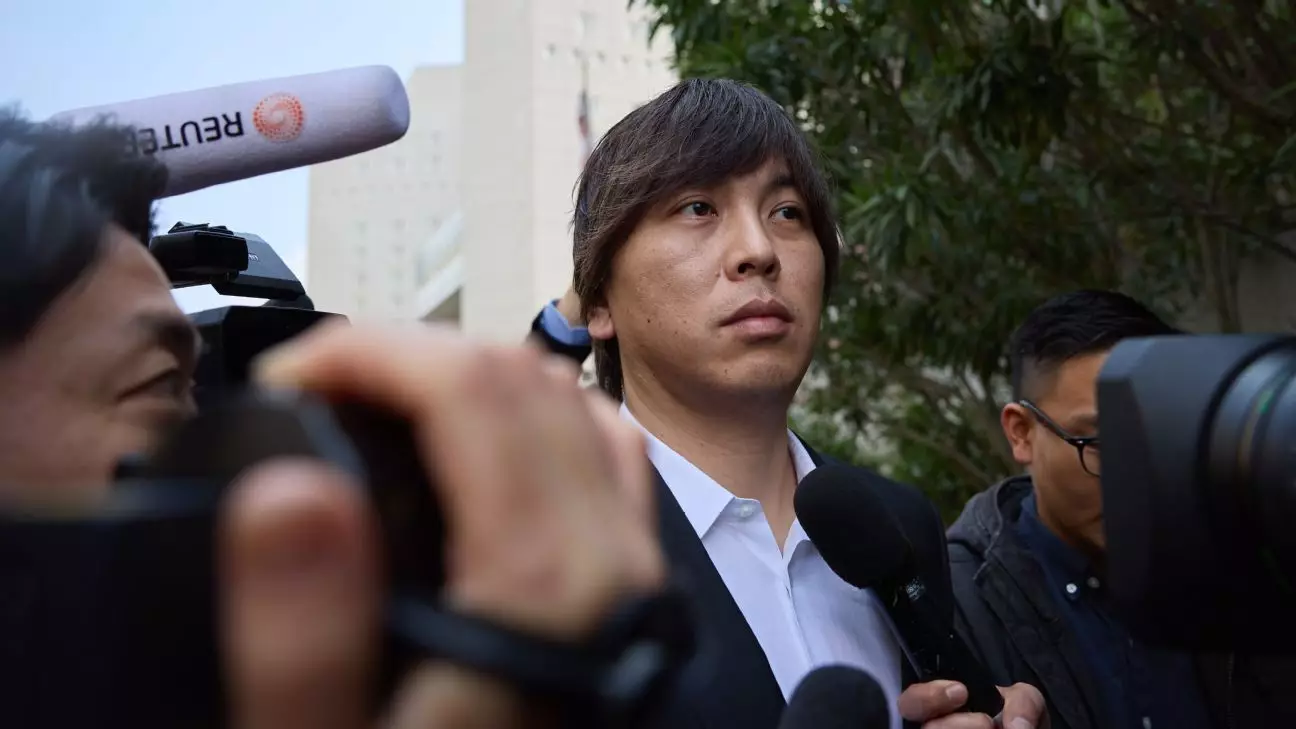In a story that highlights both betrayal and the complexities of human behavior, the legal troubles surrounding Shohei Ohtani’s former interpreter, Ippei Mizuhara, have captured national attention. Set against the backdrop of Major League Baseball, this case unravels themes of trust, responsibility, and the darker urges that can push individuals to commit unscrupulous acts. The discussions in court, particularly regarding Mizuhara’s alleged gambling addiction and his guilt, expose a layered narrative that is equally compelling and troubling.
Mizuhara stands accused of stealing millions from Ohtani, a burgeoning star for the Los Angeles Dodgers. The prosecutors argue that Mizuhara exploited his position of trust, siphoning funds that belonged to the athlete in order to settle purported gambling debts. Instead of displaying signs of financial desperation or addiction, they argue that Mizuhara had sufficient means to manage his expenses, casting doubt on his claims of necessity. Notably, Mizuhara’s gambits include fraudulent wire transfers and unauthorized usage of Ohtani’s funds, with evidence suggesting that he was more cunning than desperate.
While Mizuhara has portrayed himself as a victim of compulsive gambling, federal prosecutors have dismissed these claims as unfounded. Their investigation turned up scant evidence of such a longstanding addiction, primarily based on Mizuhara’s own unverifiable statements. The notion that his actions stemmed from an inability to control gambling does not hold up under scrutiny when evidence reveals that he actively engaged in deceitful behavior rather than seeking help.
In the world of criminal justice, a defendant’s expression of remorse can be a double-edged sword. Mizuhara has issued statements claiming regret for his actions, but prosecutors have called his sincerity into question. They highlight that “all defendants claim to be remorseful at the time of sentencing,” suggesting that some expressions of regret may be more performative than heartfelt. Mizuhara’s request for a lenient 18-month sentence stands in stark contrast to the nearly five years sought by prosecutors, leading one to wonder if public pressure influences his claims of remorse.
Mizuhara’s attorney, Michael Freedman, has refrained from commenting publicly, leaving much ambiguity surrounding the defense strategy. Given the gravity of the accusations and the significant amount of money involved, the questions about Mizuhara’s authenticity might not only reflect on his character but also on the larger conversation about accountability.
The financial records presented by prosecutors complicate Mizuhara’s narrative. Their findings indicate he had considerable funds in his checking account, revealing that he possessed the means to honor his financial obligations. For instance, at the time of the first fraudulent transfer from Ohtani’s account, Mizuhara was allegedly managing over $34,000 in his own bank. This raises critical questions about his decision-making process: why would someone with apparent financial stability resort to illegal actions?
Moreover, his assertions about living paycheck to paycheck while maintaining multiple residences also come under scrutiny. Prosecutors claim he used Ohtani’s funds for rent without his knowledge, an act that adds another layer of deceit to his financial dealings. This contradiction invites speculation about Mizuhara’s lifestyle choices and motivations. It begs the question: was he caught in a web of his own making, or did he willingly choose to manipulate trust for personal gain?
The final outstanding question is the appropriate penalty for Mizuhara’s alleged transgressions. With sentencing set for February 6, the court will have to navigate the thin line between punishment and rehabilitation. Prosecutors advocate for a lengthy incarceration period alongside substantial restitution payments, asserting the necessity of accountability for such egregious breaches of trust.
As the legal proceedings unfold, the case serves as a broader cautionary tale about the implications of betrayal, the allure of easy money, and the potential for ruin when trust is abused. It confronts issues surrounding gambling addiction, trust, and ethical responsibility within professional sports—an industry that demands a high degree of integrity from its players and associates.
Ultimately, the saga of Ippei Mizuhara serves as a stark reminder that while fame and fortune might shield those in the spotlight, the consequences of irresponsible actions can have dire repercussions. For Shohei Ohtani and those who trust the people around them, it reinforces a poignant lesson about the importance of vigilance and the need to uphold ethical standards amidst temptations of greed.


Leave a Reply